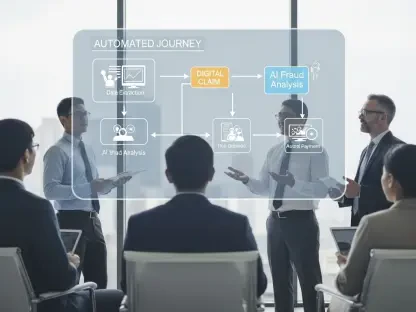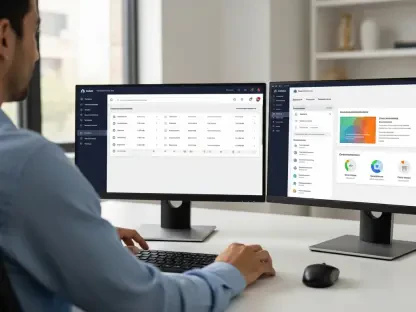In an era where digital tools significantly influence business operations, task management software is witnessing explosive growth, promising a dynamic future. By 2032, the market for these solutions is projected to reach approximately USD 13.83 billion, driven by the increasing adoption of AI and cloud-based innovations designed to enhance productivity and collaboration. Current trends and future predictions paint a vibrant picture for this evolving industry.
Navigating the Future of Task Management
As organizations gravitate toward efficiency, adopting robust task management solutions has become paramount. These tools provide critical support in handling complex workflows, thereby catering to the demands of modern businesses. They enable seamless collaboration, crucial in today’s hybrid and remote work environments. With advancements in artificial intelligence and cloud computing, there’s a transformation in how companies manage tasks, driving substantial growth in the market.
Technological Advancements and Market Dynamics
Task management software is evolving, with AI and cloud computing leading the charge. AI integration offers intelligent automation, making processes more streamlined and effective. This evolution is helping businesses lessen cognitive overload and allocate resources more efficiently. On the other hand, cloud-based solutions deliver the flexibility and scalability that companies demand. A shift from traditional on-premises software to cloud environments is evident, especially among small and medium-sized enterprises (SMEs) seeking cost-effective solutions. Nevertheless, challenges remain, such as data security concerns and potential vendor lock-in.
Regional Insights and Market Growth
The task management market displays varied dynamics across different regions. North America stands at the forefront, with advanced technological infrastructure facilitating widespread adoption. Conversely, the Asia Pacific region is experiencing rapid growth, buoyed by digitalization and increased SME activity, offering fertile ground for innovation. As these markets continue to mature, understanding regional nuances, including regulatory environments and local technological initiatives, becomes essential for businesses aiming to thrive.
Forecasting Future Trends
Looking forward, the integration of emerging technologies like machine learning and IoT within task management software hints at significant shifts in industry standards. These advancements are enhancing real-time predictive analytics and influencing decision-making processes. As businesses increasingly adopt distributed and collaborative work models, industry experts anticipate sustained growth, especially where regulatory changes and economic factors evolve.
Strategic Insights for Continued Growth
Reflecting on the market analysis, the role of AI and cloud solutions in improving task management is undeniable. Businesses contemplating integration should focus on developing scalable infrastructures, strengthening data security measures, and adopting agile methodologies. These strategies will enable companies to address complexities effectively and ensure smooth digital transitions while maintaining a competitive edge.
In conclusion, task management software is positioned for robust expansion due to technological advancements and a growing reliance on digital tools. As traditional work models continue to evolve, the demand for innovative solutions that boost operational efficiency and facilitate seamless collaboration has been rising. Addressing challenges like data privacy and integration complexities becomes essential for sustained market growth. Forward-thinking enterprises should remain adaptable and embrace change, leveraging new technologies to drive success in a rapidly changing landscape.









